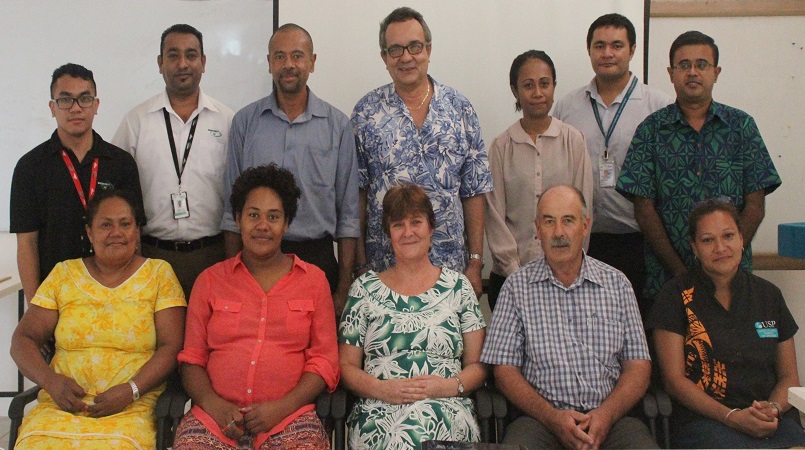
A multi-disciplinary programme framework has been developed to address the impacts of invasive land snail and slugs on food security and safety, and on unique cultural and biological heritage.
This was discussed during a workshop on ‘Food Security and Bio-Security in Melanesia’, organised by The University of the South Pacific’s (USP) School of Biological and Chemical Sciences (SBCS) at the Laucala campus in Suva on 5 April, 2016.
The workshop looked at land snails as pest agents, including biosecurity risks and disease transfer, and how introduced species leads to the decline in self-sufficiency and healthy food production. The potential for using edible native snails and their sustainable use was also discussed.
Associate Professor at the Division of Biological Sciences, Dr Gilianne Brodie said the aims of the workshop were to ensure an exchange of information across all stakeholders, strengthening collaborative linkages via development of joint research proposals and identifying knowledge gaps.
“The workshop was also aimed at exploring funding opportunities that facilitate multi-disciplinary collaboration and address stakeholder needs,” Dr Brodie added.
Participants included representatives from Fiji’s Ministry of Health, Ministry of Agriculture, Biosecurity Authority of Fiji, USP, NatureFiji-MareqetiViti, and Landcare Research New Zealand.
According to Dr Brodie, Fiji’s land snail fauna is highly diverse as there are over 230 species of which 90 per cent are native and 78 per cent are endemic to the archipelago.
“Many of the non-native species are known agricultural pests and documented as disease carrying vectors elsewhere in the world,” she said.
“Collated information is urgently required to detect and adequately manage non-native species, and if possible to prevent the spread of invasive species to non-infected islands.”
The new programme which is expected to run for 3-5 years consists of four focal areas to help facilitate collaboration between cross-country and organisational stakeholders. The programmes include:
-
Invasive land snails as threats to food and cash-crop production;
-
Food safety: snail-vectored pathways of Angiostrongylus cantonensis & medical parasitology;
- Endemic Placostylinae systematics, extinction risk & traditional knowledge.
